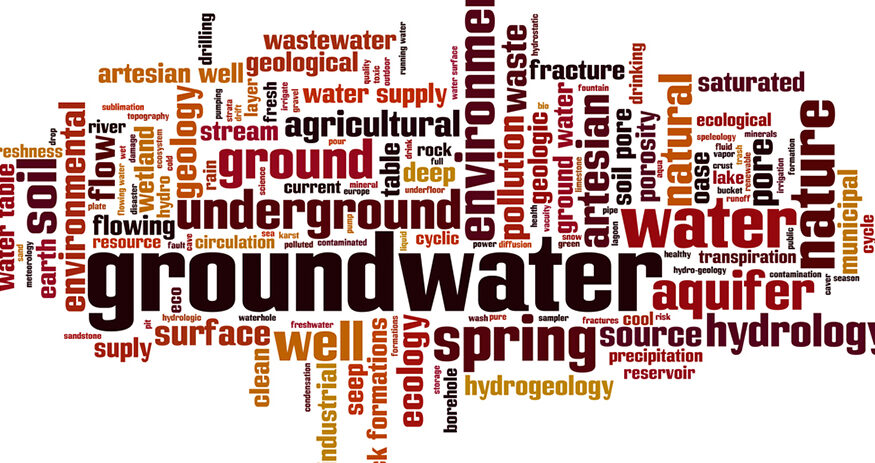‘Gatekeeper’ Rep. Griffin thwarts groundwater bills
By Mia Osmonbekov Arizona Capitol Times//September 24, 2023//
‘Gatekeeper’ Rep. Griffin thwarts groundwater bills
By Mia Osmonbekov Arizona Capitol Times//September 24, 2023//
Rural Arizonans are growing increasingly frustrated with Rep. Gail Griffin’s inaction on groundwater regulation.
Griffin, a Republican from Hereford who chairs the House Natural Resources, Energy and Water Committee, has repeatedly withheld groundwater management bills supported by rural stakeholders from being heard.

There are currently no groundwater regulations in rural areas, which cover 80% of Arizona.
“We don’t have that same level of balancing or management protection for our finite rural groundwater supplies that they have in urbanized communities,” said Travis Lingenfelter, chairman of Mohave County Board of Supervisors. “Representative Griffin does not want any balancing tool or any regulation of rural groundwater aquifers.”
Regina Cobb, a former lawmaker from Mohave County, fought for legislation to establish Rural Management Areas (RMAs) for three years, a program allowing rural communities to directly manage their water.
However, each time Cobb presented her bills, Griffin stopped them.
“Representative Griffin is a good lawmaker, but she is a gatekeeper as far as water issues in the House,” Cobb said. “She has pretty much shut her mind to any kind of regulation at all on groundwater.”
When Cobb first started out as a legislator, she approached the more experienced Griffin for help about her burgeoning water policy ideas.
“She was very nice and said ‘let me look at it’ and then didn’t move it anywhere,” Cobb said. “As the years have gone on, I realized that’s her way of putting [groundwater] in the jar and not addressing it.”
Lingenfelter echoes that sentiment. He has worked with county boards of supervisors across Arizona to recreate and bring back RMA legislation.
“We think it’s a really good tool, and it’s a great starting point,” Lingenfelter said. “But we haven’t even been given the courtesy of one committee discussion or debate at the state level because if the chairman of the committee doesn’t want to hear it, they won’t hear it.”
Griffin’s voting record shows the representative’s disinclination for imposing water regulations as a whole.
In June, Griffin voted against SB1432, legislation establishing updated water regulations for Arizona. In 2016, Griffin sponsored SB1400 and SB1268, which would have eliminated water supply stipulations in Cochise and Yuma counties and exempted cities from following their counties’ assured water supply guidelines.
Griffin also penned an op-ed in August characterizing rural groundwater regulation as “bad policy,” enumerating several reasons why she thinks they are bad, from unelected appointees running water control districts to creating additional layers of government and giving “additional taxing, zoning, planning, and condemnation authority to a small group of unelected, unaccountable bureaucrats to decide the community’s economy and “tell you what you can and cannot do with your private property.”
“‘Local control’ (in this context) is a wolf in sheep’s clothing, designed to trick voters into thinking the bills do something other than what they actually do,” Griffin said in the article. “All of these are fraught with abuse and are unworkable for Arizona.”
Ron Doba, the executive director of the Northern Arizona Municipal Water Users Association, sits on the governor’s water council with Griffin and respects her approach.
“I think she really favors individual volunteer conservation efforts, and I support that completely,” Doba said. “But we have to have some controls in how our groundwater is being used so that folks don’t come in and drill a well, pump the water level down and then leave.”
Doba said that while he has confidence in Griffin’s leadership, he is also aware of rural stakeholders’ desire to be heard in committee meetings.
“Both sides of the argument should be put on the table so that the members of these committees can make the decisions that are in the best interest of the citizens of the state of Arizona,” Doba said.
Griffin, who did not respond to a request for an interview, wrote in her column that she is committed to working with anyone who is willing to work with her “and others to find reasonable solutions.”
“Until then, I will continue to fulfill my duty to the public to support good legislation, and oppose bad legislation, on rural groundwater management in our state,” she wrote.
Cobb said that she hopes rural groundwater regulations are passed in the near future.
“We should have addressed [groundwater] probably 10 to 15 years ago, or longer, before it became a problem,” she said. “Something needs to be accomplished, and I hope somebody else can do it now that I’m not in the office any longer.”
According to Lingenfelter, the stakes are high, as a lack of groundwater regulation “is starting to cause problems and will eventually lead to even worse water public health crises for rural communities”.
“Rural Arizonans deserve water security every bit as much as urban Arizonans do,” he said.


















